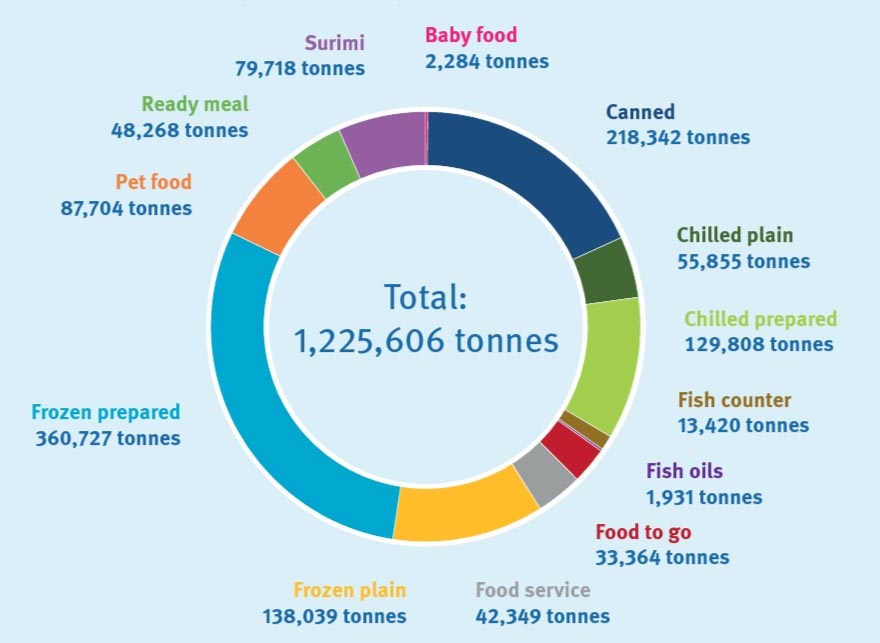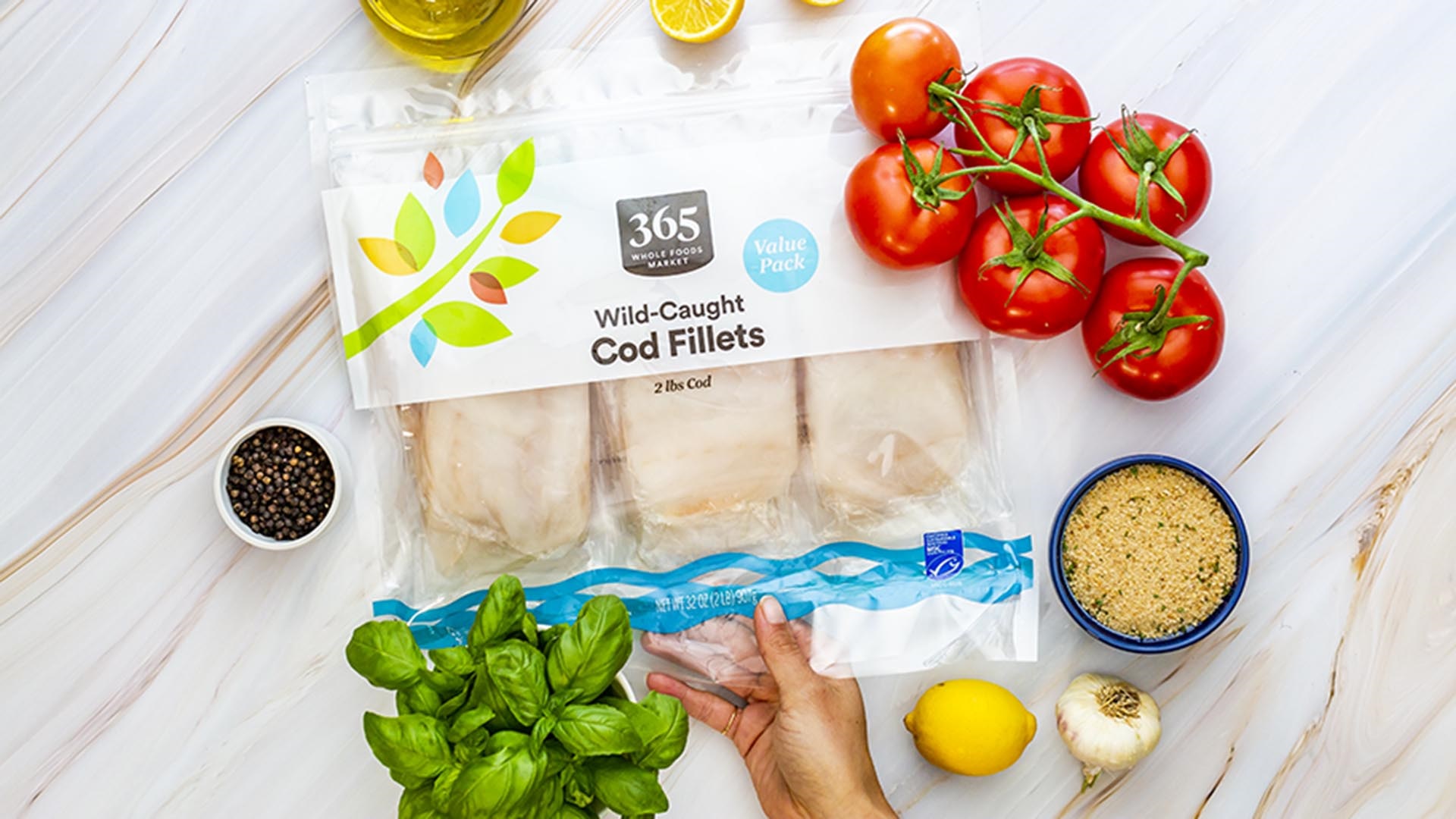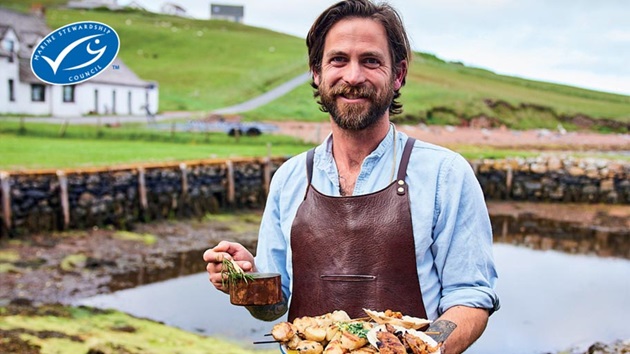A message from our CEO
"Last year was a big year for the ocean, with governments reaching landmark agreements to protect biodiversity and the high seas. The seafood sector will have an important role to play in meeting these commitments, just as it does in contributing to the delivery of the United Nations Sustainable Development Goals (SDGs) and responding to climate change.
Despite these multilateral efforts, we face multiple challenges, including a retreat from globalisation, war in Ukraine, the threat of recession, and high inflation taking hold in major economies around the world. Against this backdrop, we must not lose the momentum that we have built in the sustainable seafood movement.
Thank you to everyone who has supported us this year. I know your engagement and leadership is making a real difference to the way our oceans are being fished. MSC will redouble our efforts to add value to certified fisheries, to recognise and celebrate them, and to work with you to continue to incentivise improvements in the way our oceans are fished."
Rupert Howes, Chief Executive, Marine Stewardship Council
Progress in sustainable fishing
15 million+ tonnes
MSC engaged catch
66 countries
engaged in the MSC program
674 fisheries
engaged in the MSC program
19% of all wild marine catch engaged with the MSC*
Fisheries engaged in the MSC program
550
17
90
17
Improvements by MSC certified fisheries over the last three years: 417
146
118
74
79
Expanding our program
Ending overfishing and maintaining ocean ecosystems is a global challenge – but it’s especially urgent in developing economies. Millions of people depend on fishing for their livelihoods and food security, with small-scale fisheries, predominantly in developing countries, supplying around 40% of the global catch and more than 90% of jobs in the sector. With fish stocks coming under ever greater pressure, it’s vital that people have the tools to manage them sustainably and are rewarded for doing so.
Supporting fisheries towards sustainability
14
17
19
56
Scaling Impact: The Ocean Stewardship Fund
We aim to mobilise US$100 million over the next 10 years to support sustainable fishing. More than 100 grants worth almost US$5 million have been awarded from the fund over the last four years. These funds support a wide range of fisheries and invest in research and innovation to improve fishing practices on the water.
In the latest round of funding...
In the marketplace
By growing the market for certified seafood, our corporate partners are incentivising sustainable fishing and enabling responsible consumption.
In spite of the challenges around COVID-19 and the ongoing cost of living crisis, sales of MSC labelled seafood remain strong. There are now over 20,000 labelled products on shelves around the world.
The MSC label
20,838
$12.4 bn
66
47,858
MSC labelled products: volume sold by type 2022-23

While the year saw continued growing commitment to sustainable seafood from retailers and seafood brands throughout the world, Southern Europe, Japan and the USA have all seen a step change in commitments from commercial partners.
Southern Europe
France: sales of MSC certified seafood have doubled over the past five years. Along with long-standing partners like Carrefour, new retailers have been joining the program: E.Leclerc and Aldi now offer a wide range of MSC certified products with increased volume and products bearing the blue MSC label.
Italy: Bolton has been leading dramatic growth in the sustainable tuna market through its brand Rio Mare, which aims to source all its products from MSC certified fisheries or those in credible improvement projects by 2025.
Spain: El Corte Ingles is the latest retailer to achieve MSC Chain of Custody certification for its fresh fish counters, joining Eroski and Makro. Retailers Dia and La Sirena made great strides by releasing 30 and 25 MSC products in their stores.
Portugal: several retailers increased their offer of own-brand products with the MSC label. Market leader Lidl now has 79 MSC certified private label products and Continente has 45.

United States
Despite over 80% of US landings being certified, the US market and consumers have been slower to demand certified and ecolabelled seafood. But this is beginning to change: MSC certified seafood sales have doubled over the past five years, and over 100 new MSC labelled products hit the US market last year. Long-term partners including Bumble Bee and Whole Foods have led the way, with North Coast Seafoods also adding new MSC certified pet food lines and expanding its frozen range.
Japan
Since 2020, the number of MSC labelled products has increased by 30% to over 700 in Japan. Aeon and the Japanese Consumers’ Cooperative Union (JCCU) are leading the market for MSC labelled products.
Keeping seafood sustainable with Jürgen Pauly of Globus
“As a passionate environmentalist and chef, there’s nothing more important than choosing ingredients that make a positive impact on the environment and taste good.”
Chef and MSC ambassador
Species focus
The MSC has been pressing government delegations to reach a solution over quotas in the North East Atlantic, but the fate of small pelagic fisheries in the region remains uncertain.
Elsewhere, squid and octopus fisheries are making great progress and more MSC labelled products are available than ever before.
Increased international cooperation on harvest strategies for tuna has brought growth in both the percentage of certified sustainable stocks and the volume MSC labelled products on sale.
For full features on these, plus crab, lobster, prawns and shrimp, salmon, bivavles and seaweed, see the full report.
Tuna
178, 361 tonnes
volume of MSC labelled sales
53%
of global wild tuna catch from MSC engaged fisheries
Talking Tuna with Julio Morón of OPAGAC
Whitefish
567, 828 tonnes
volume of MSC labelled sales
75%
of global wild whitefish catch from MSC engaged fisheries
Our revised Fisheries Standard
Since 1 May 2023, fisheries seeking certification for the first time are assessed against the MSC Fisheries Standard Version 3.0, which sets a new global benchmark for sustainable fishing.
The release of the revised Standard follows the most extensive review of marine science and fisheries best practice we’ve ever undertaken, during which we reviewed more than 600 submissions from the fishing industry, supply chain companies, fisheries, scientists and environmental NGOs.
What's new in the Standard?
New requirements will ensure that assessors use high-quality evidence to score fisheries, as well as:
Setting a course for 2030
Sustainable fisheries help to underpin healthy and productive ocean ecosystems, as well as supporting millions of livelihoods globally.
Our goal for 2030 is for over one-third of global landings to come from MSC certified or engaged fisheries. Our new strategic plan sets out how we will work with our partners to meet the challenges of the coming decade.
We are increasing our efforts to engage with and build support amongst stakeholders including governments, environmental NGOs and scientists. And we plan to deliver consumer campaigns to raise awareness and understanding of the positive impact that the public can have by supporting seafood with the MSC ecolabel.
“There can be no healthy planet without a healthy ocean, and the ocean’s health is currently in decline. Intergenerational justice demands we dedicate ourselves to reversing that decline.”
United Nations Secretary Generalʼs Special Envoy for the Ocean

